13 Best DIY Overnight Face Masks To Hydrate Your Skin
Say ‘good morning’ to soft and supple skin with these simple DIY overnight solutions.
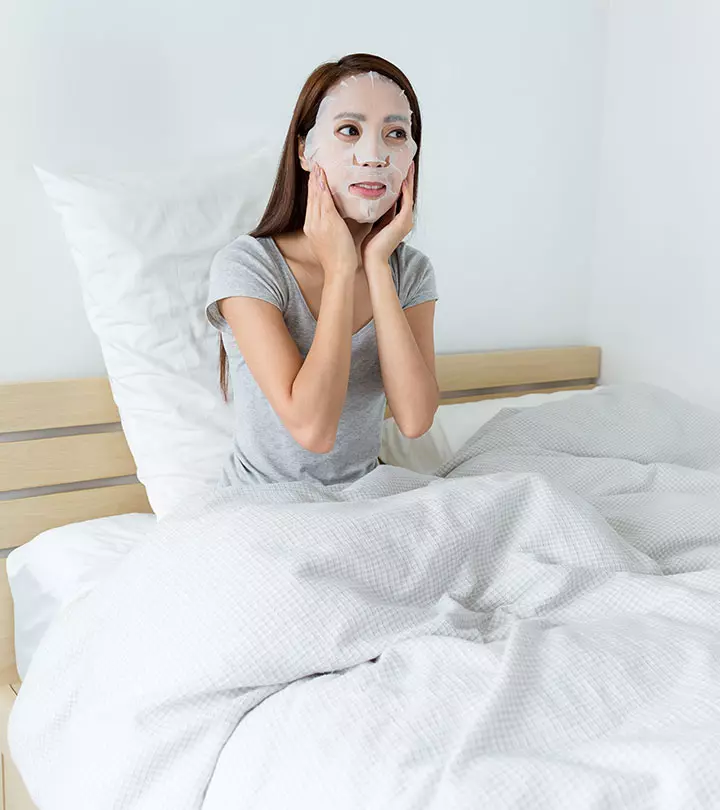
Image: Shutterstock
You might think of overnight face masks as a skincare fad. However, they give a whole new meaning to your beauty sleep. How? Well, your body heals and repairs itself while you sleep. This is also when your epidermal cellsi The outermost cells of the skin layer that act as a barrier for the body, protecting it from external conditions. undergo healing (1). You need to provide them with the most potent ingredients for better healing. There are lots of commercial overnight masks available on the market, but if you are more of a DIY person and believe in keeping it au naturel, we have a list of easy DIY overnight face masks that you can try.
But before you scroll down to the DIY section, you need to know what an overnight face mask is. Let’s find out.
In This Article
What Is An Overnight Face Mask? Is It Different From Regular Face Masks?
Overnight face masks are masks that you apply right before going to bed and wash off only after you wake up. The main objective of an overnight face mask is to boost hydration and help the skin repair itself by providing nourishment throughout the night.
You have to leave these masks on your face overnight and wash off the next morning. Overnight face masks are also known as sleeping masks, and you will get them easily in beauty stores. However, if you want to use natural ingredients, you can try the overnight face masks mentioned further in the article for your face.
 Trivia
TriviaBut first, let’s understand why using overnight face masks can be such a good idea. Scroll down.
Key Takeaways
- An overnight face mask is made with nourishing ingredients to boost skin health and appearance.
- Watermelon not only refreshes the skin, it contains lycopene that prevents skin damage.
- Oils like olive, jojoba, rosehip seed, almond and coconut oils are great ingredients for overnight face masks.
- Cucumber refreshes the skin, eases sunburn, soothes inflammation, and diminishes wrinkles.
Benefits Of Using Overnight Face Masks
Here are the top 5 benefits of using overnight face masks that will convince you to indulge in some self-care activity!
- They provide intense moisture, helping to replenish and lock in hydration overnight.
- They boost cell regeneration and repair during sleep for a healthier look.
- They improve overall skin texture, reducing roughness and unevenness.
- They promote a radiant and glowing appearance by targeting dullness.
- They address specific skin concerns such as dryness, fine lines, or uneven skin tone.
Now, let’s check out some easy yet super beneficial DIY overnight face mask recipes below!
13 Best DIY Overnight Face Masks
1. Coconut Oil Face Mask
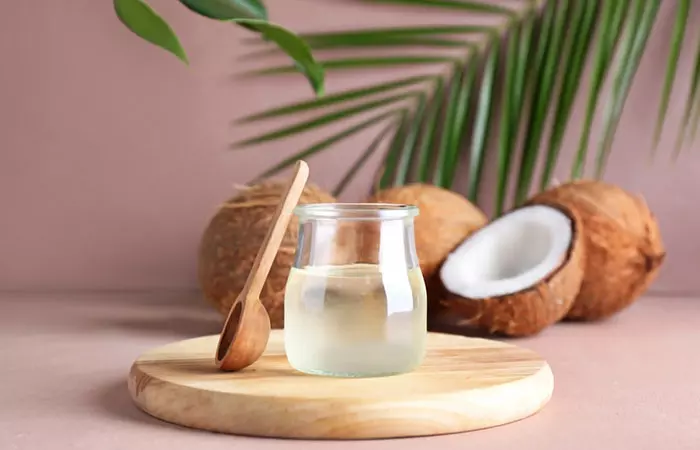
Coconut oil is the superfood your skin needs if it is dry and irritated. Applying coconut oil on your face can reduce transepidermal water lossi Loss of water from the skin surface through evaporation, which can cause dry skin conditions. , calm your skin, reduce inflammation, improve hydration, treat sun damage, and prevent infection (2). However, if you have oily and acne-prone skin, stay away from coconut oil.
Directions: Mix a teaspoon of extra virgin coconut oil or cold-pressed coconut oil in your favorite night cream. Massage it on your face and wash off the next morning.
Note: You can also use coconut oil directly on your face without mixing it with other beauty products.
2. Watermelon Sleeping Mask
Watermelon is not only refreshing, but it also pampers your skin. Watermelon contains lycopene that helps prevent skin damage caused by harmful free radicals (3), (4).
Directions: Grate a cup of watermelon cubes (the red flesh) and strain the juice. Using a cotton ball, apply it on your face and let it dry before going to bed.
3. Turmeric And Milk Face Mask
Turmeric milk is a popular Ayurvedic remedy for many health issues. It has antimicrobial and anti-inflammatory properties, and it works as a powerful antioxidant that reduces acne and photoagingi Premature aging of the skin due to exposure to harmful UVA and UVB radiation from the sun. and improves alopecia and skin health (5). The lactic acid present in milk enhances skin texture and firmness (6).
Directions: Mix half a teaspoon of turmeric powder in a tablespoon of raw milk. Use a cotton ball to apply it to your face, just the way you apply toner. Let it dry completely before going to bed. Make sure to use old pillow covers as turmeric can soil them.
4. Cucumber Face Mask
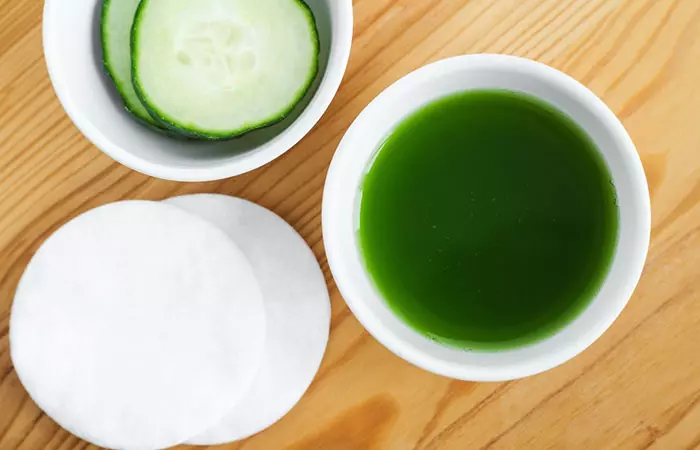
Cucumber is a superfood not only for your body but also for your skin. Cucumber juice has a cooling effect on the skin. It not only boosts skin hydration levels but also reduces inflammation, soothes sunburn, improves the appearance of wrinkles, and brightens your skin (7).
Directions: Extract the juice of half a cucumber and apply it with a cotton ball on your face.
Doro Cubillo, a vlogger, spoke about her experience of using an overnight cucumber face mask for her pimples in her video. She said, “It is pretty much gone. It looks less red than yesterday (ⅰ).”
5. Olive Oil Mask
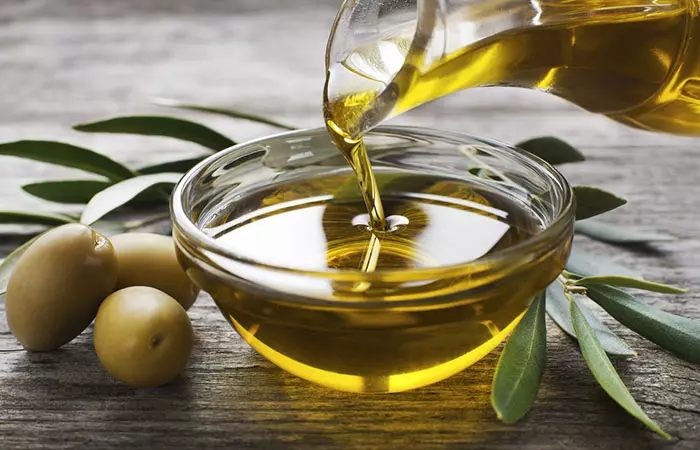
Olive oil is high in phenolic compounds (flavonoids and phenolic alcohols), linoleic acid, oleic acid, and other antioxidants that may promote dermal reconstruction, reduce oxidative stress, and have anti-inflammatory benefits (2).
Directions: Mix a few drops of virgin olive oil in your favorite night cream and massage it on your face. You can also add olive oil to your DIY night cream for beautiful skin.
Note: You can also use olive oil directly on your face without mixing it in any cream.
6. Aloe Vera And Vitamin E Face Mask
Aloe vera contains antioxidants like vitamins A, C, and E, along with amino acids, salicylic acid, lignin, and enzymes. It reduces inflammation and promotes collagen synthesis. This aloe vera face pack also protects your skin from the damaging effect of UV rays (8).
Directions: Squeeze the oil from a vitamin E capsule and mix it with aloe vera gel. Apply it to your face and neck.
Caution: Do a patch test before using Vitamin E oil on your skin to check if your skin is allergic to it.
7. Green Tea And Potato Face Mask
Green tea contains polyphenols, and topical green tea can help prevent inflammatory responses triggered by UV exposure and suppress oxidative stress (tested on animal and human models) (9). Potato juice, on the other hand, is good for oily skin. It can help in preventing skin rashes, reducing acne blemishes, and nourishing the skin (10).
Directions: Take a tablespoon of freshly brewed (and cooled) green tea and mix a teaspoon of raw potato juice with it. Use a cotton ball to apply the mixture on your skin and leave it overnight.
8. Almond Oil Face Mask
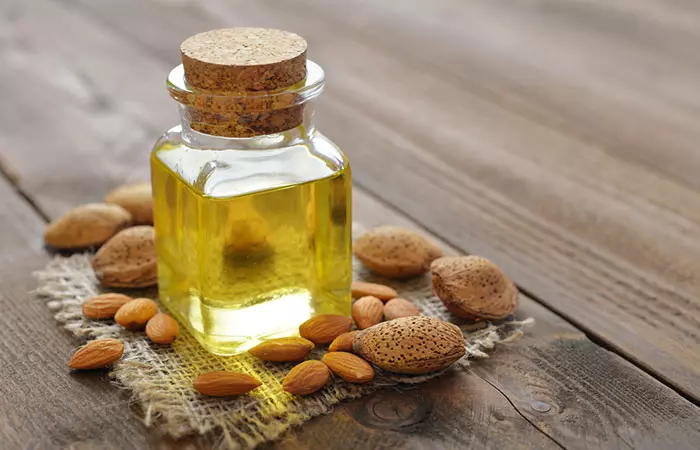
Natural oils are excellent emollients that keep your skin hydrated and repair the skin barrier. Almond oil also has sclerosant properties and can help improve skin tone and complexion (11).
Directions: Mix a teaspoon of almond oil (or sweet almond oil) with a tablespoon of fresh aloe vera gel. You may add a pinch of turmeric if you want. Apply the mixture on your face, let it dry, and go to sleep.
9. Jojoba Oil And Tea Tree Essential Oil Face Mask
Jojoba oil
and tea tree oil have anti-inflammatory properties. Jojoba oil can help reduce skin infections and delay skin aging (12). Tea tree oil can aid in the treatment of acne and other skin infections due to its high antioxidant activity (13).
Directions: Mix 2-3 drops of tea tree essential oil in a teaspoon of jojoba oil and apply it to your face. Make sure you do a patch test before using tea tree oil. In case you are allergic to tea tree oil, avoid this mask.
10. Rose Water And Chamomile Mask
By rose water, we mean rose distillates or rose hydrosol. Rosewater (along with other botanical extracts) is effective against acne-causing bacteria. It also has a soothing effect on your skin (14). The topical application of chamomile extracts has anti-inflammatory effects on the skin (15).
Directions: Add a teaspoon of freshly brewed chamomile tea (you may even use 2-3 drops of chamomile oil) to a tablespoon of rose hydrosol. You may add a pinch of turmeric. Apply the mixture to your face with a cotton ball before going to sleep.
11. Rosehip Seed Oil Face Mask
Rose hips (the fruit of the rose bush) are rich in vitamins and phenolic compounds, such as tocopherol, carotenoids, and tannins, which make them powerful antioxidants. Rosehip seed oil is popular for its anti-inflammatory and anti-aging properties (16). Use this anti-aging face mask at home to achieve healthy-looking, plump skin.
Directions: Mix 5 drops of rosehip seed oil with a teaspoon of aloe vera gel and massage it on your face. You can also apply just rosehip seed oil on your face.
12. Licorice Oil Face Mask
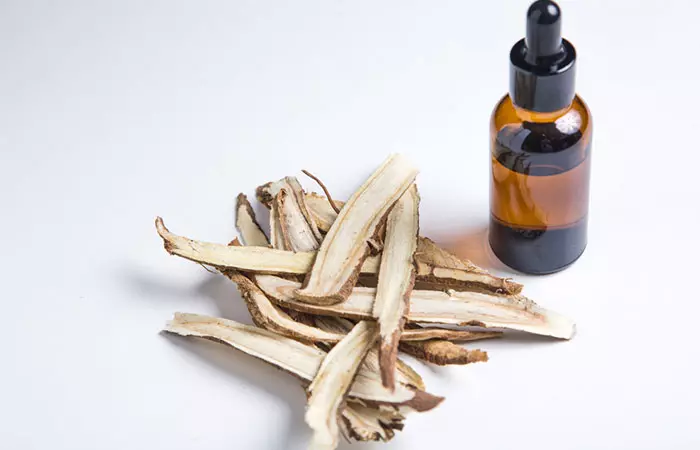
Licorice extracts (whether in powder or oil form) can help in treating hyperpigmentation and melasmai Uneven dark patches and markings on the skin caused due to sun radiation or hormonal changes. . They have anti-inflammatory properties and scavenge free radicals. They may help you achieve bright, glowing skin and reduce UV-induced skin damage (17). However, more research is required to establish the therapeutic properties of licorice.
Directions: Mix 3-4 drops of pure licorice oil with a teaspoon of aloe vera gel and a teaspoon of freshly brewed green tea. Massage this mixture on your face and let it stay overnight.
13. Lemon, Honey, And Yogurt Face Mask
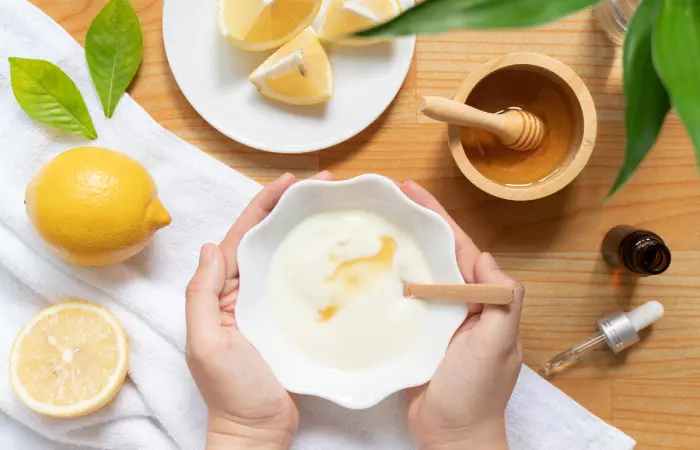
This vitamin C face mask will help you achieve naturally radiant skin in no time. Lemon is rich in antioxidants, malic acid, and ascorbic acid (vitamin C), which may help brighten the skin tone, promote natural glow, and fade pigmentation (18). Honey has anti-inflammatory properties, which may soothe skin inflammation and irritation (19). Yogurt may further help soothe the skin and prevent any skin irritation caused by lemon.
Directions: Mix 1 tablespoon of pure lemon juice with 1 tablespoon of honey and 2 teaspoons of yogurt. Apply the concoction on the face. Leave this face pack with honey on your face overnight, then rinse it off the next morning with lukewarm water and a gentle cleanser.
 Quick Tip
Quick TipInfographic: Top 5 DIY Overnight Face Masks To Nourish Your Skin
Switching up your overnight creams with overnight face masks once in a while may show tremendous benefits for your skin. These are facial treatments that may provide much-needed relaxation and rejuvenation to your skin. You can use different varieties of face masks depending on your skin type and conditions. If you want to explore organic options to avoid chemical-induced ones, there are many amazing DIY recipes. Check out the infographic below to know our roundup of the top five DIY overnight face masks made of ingredients that are easily available in your pantry! Illustration: StyleCraze Design Team
Overnight face masks are a great way to show some love and care to your skin. Natural ingredients such as coconut oil, cucumber, watermelon, or aloe vera make your DIY face masks the ultimate skin care products. These are fantastic home remedies to rejuvenate the skin. They provide the necessary nutrients to nourish your skin, fight microbes, reduce inflammation, soothe sunburns, and promote the production of collagen. What’s more, they protect your skin from UV rays and slow down aging. So go on, use these overnight face masks in your self-care routines, and see your skin shine! Remember to conduct a patch test to make sure you are not allergic to any of these ingredients.
Frequently Asked Questions
How frequently should I apply overnight face masks?
Overnight face masks can be used 2-3 times a week, depending on your skin type and requirements. For example, individuals with dry skin can benefit from more frequent use, while oily skin may require less.
Can I leave egg white and honey on my face overnight?
A raw egg may contain salmonella, so it is not advisable to leave it on your face overnight. Sleeping with honey on your face can get messy and uncomfortable.
Is it possible to use curd or tomato as overnight face masks?
Curd has a cooling effect, but if left overnight, it may give you a cold. Tomato juice may irritate the skin if left for a long time. Hence, it is better to avoid these ingredients as overnight masks.
Do you use moisturizer before a sleeping mask?
While it is not required, you can apply a moisturizer, night cream, facial serum, or oils 15 minutes after your sleeping mask to boost hydration, especially if you have dry skin.
Which is better – a night cream or a night mask?
It depends on your needs. A night cream is formulated to be applied daily, while you use a sleeping mask 1-2 times a week. Use a night mask when you are in need of intense hydration and want to target a specific skin problem.
Can I use a sleeping mask in the morning?
You can use a sleeping mask in the morning as well. Remember that this product was created to be applied for hours at a time. Clear out your day for a pampering session for yourself so that you can leave the mask on for as long as necessary.
Do overnight masks clog pores?
Possibly not. Overnight masks were designed to have non-comedogenic properties with high sealant properties.
Can I use Vaseline as a sleeping mask?
It is not recommended to use Vaseline or petroleum jelly-based masks overnight as they may clog your pores and cause acne.
Illustration: Best DIY Overnight Face Masks To Hydrate Your Skin
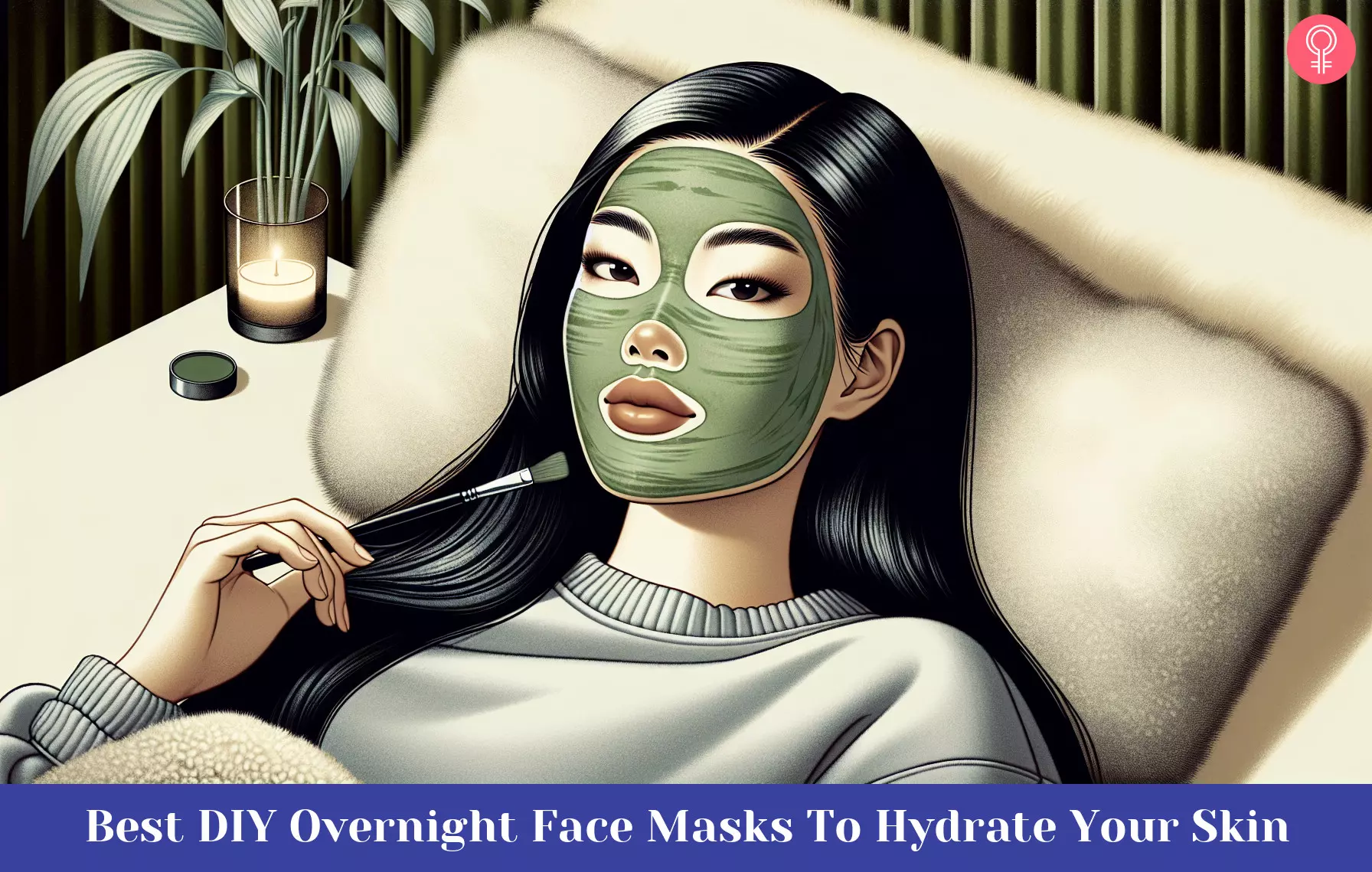
Image: Dall·E/StyleCraze Design Team
Transform your skin with these 6 overnight aloe vera masks for clear, glowing skin. Watch this video and get ready to wake up to a brighter, healthier complexion.
Personal Experience: Source
StyleCraze's articles are interwoven with authentic personal narratives that provide depth and resonance to our content. Below are the sources of the personal accounts referenced in this article.
i. I applied CUCUMBER JUICE on my face OVERNIGHT & This happened! *not expecting this!*https://www.youtube.com/watch?v=JhnZfz9LfU0
References
Articles on StyleCraze are backed by verified information from peer-reviewed and academic research papers, reputed organizations, research institutions, and medical associations to ensure accuracy and relevance. Read our editorial policy to learn more.
- Epidermal stem cells ride the circadian wave, Genome Biology, US National Library of Medicine, National Institutes of Health.
https://www.ncbi.nlm.nih.gov/pmc/articles/PMC4056451/ - Anti-Inflammatory and Skin Barrier Repair Effects of Topical Application of Some Plant Oils, International Journal of Molecular Sciences, US National Library of Medicine, National Institutes of Health.
https://www.ncbi.nlm.nih.gov/pmc/articles/PMC5796020/ - Watermelon lycopene and allied health claims, EXCLI Journal, US National Library of Medicine, National Institutes of Health.
https://www.ncbi.nlm.nih.gov/pmc/articles/PMC4464475/ - Antioxidant activity of topically applied lycopene.Journal of European Academy of Dermatology and Venereology, National Institutes of Health.
https://pubmed.ncbi.nlm.nih.gov/14678532/ - Effects of Turmeric (Curcuma longa) on Skin Health: A Systematic Review of the Clinical Evidence. Phytotherapy Research, US National Library of Medicine, National Institutes of Health.
https://pubmed.ncbi.nlm.nih.gov/27213821/ - Epidermal and dermal effects of topical lactic acid. Journal of American Academy of Dermatology, US National Library of Medicine, National Institutes of Health.
https://pubmed.ncbi.nlm.nih.gov/8784274/ - Evaluating the Potential Benefits of Cucumbers For Improved Health and Skin Care, The Journal of Aging Research and Clinical Practice.
http://www.jarcp.com/3050-evaluating-the-potential-benefits-of-cucumbers-for-improved-health-and-skin-care.html - Aloe Vera: A Short Review, Indian Journal of Dermatology, US National Library of Medicine, National Institutes of Health.
https://www.ncbi.nlm.nih.gov/pmc/articles/PMC2763764/ - Skin photoprotection by green tea: antioxidant and immunomodulatory effects. Current Drug Targets Immune, Endocrine and Metabolic Disorders, US National Library of Medicine, National Institutes of Health.
https://pubmed.ncbi.nlm.nih.gov/12871030/ - Health Benefits and Cons of Solanum tuberosum, Journal of Medicinal Plants, Plants Journal.
https://www.plantsjournal.com/vol1Issue1/Issue_jan_2013/3.pdf - The uses and properties of almond oil, Complementary Therapies In Clinical Practice, ResearchGate.
https://www.researchgate.net/publication/41404356_The_uses_and_properties_of_almond_oil - Jojoba in dermatology: a succinct review. GiornaeI Italiano di Dermatologia E Venereologia, US National Library of Medicine, National Institutes of Health.
https://pubmed.ncbi.nlm.nih.gov/24442052/ - A review of applications of tea tree oil in dermatology. International Journal of Dermatology, US National Library of Medicine, National Institutes of Health.
https://pubmed.ncbi.nlm.nih.gov/22998411/ - Efficacy of two plant extracts against acne vulgaris: Initial results of microbiological tests and cell culture studies, Journal of Cosmetic Dermatology, Wiley Online Library.
https://onlinelibrary.wiley.com/doi/abs/10.1111/jocd.12814 - Chamomile: A herbal medicine of the past with bright future, Molecular Medicine Report, US National Library of Medicine, National Institutes of Health.
https://www.ncbi.nlm.nih.gov/pmc/articles/PMC2995283/ - Therapeutic Applications of Rose Hips from Different Rosa Species, International Journal of Molecular Sciences, US National Library of Medicine, National Institutes of Health.
https://www.ncbi.nlm.nih.gov/pmc/articles/PMC5485961/ - Are Natural Ingredients Effective in the Management of Hyperpigmentation? A Systematic Review, The Journal of Clinical and Aesthetic Dermatology, US National Library of Medicine, National Institutes of Health.
https://www.ncbi.nlm.nih.gov/pmc/articles/PMC5843359/ - Vitamin C Prevents Ultraviolet-induced Pigmentation in Healthy Volunteers: Bayesian Meta-analysis Results from 31 Randomized Controlled versus Vehicle Clinical Studies
https://www.ncbi.nlm.nih.gov/pmc/articles/PMC6415704/ - Honey: A Therapeutic Agent for Disorders of the Skin
https://www.ncbi.nlm.nih.gov/pmc/articles/PMC5661189/
Read full bio of Dr. Zeel Gandhi
Read full bio of Ramona Sinha
Read full bio of Eshna Das
Read full bio of Shiboli Chakraborti






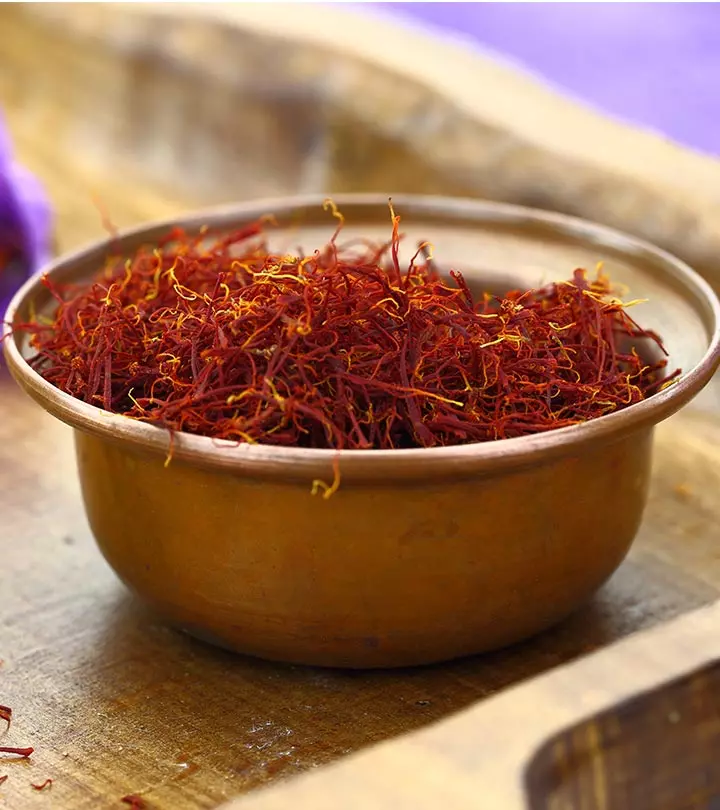
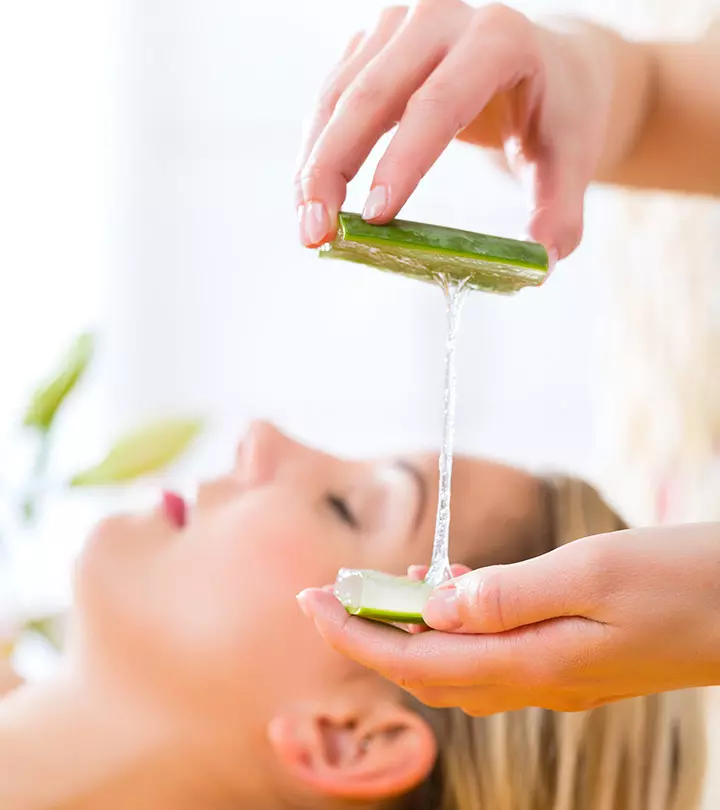


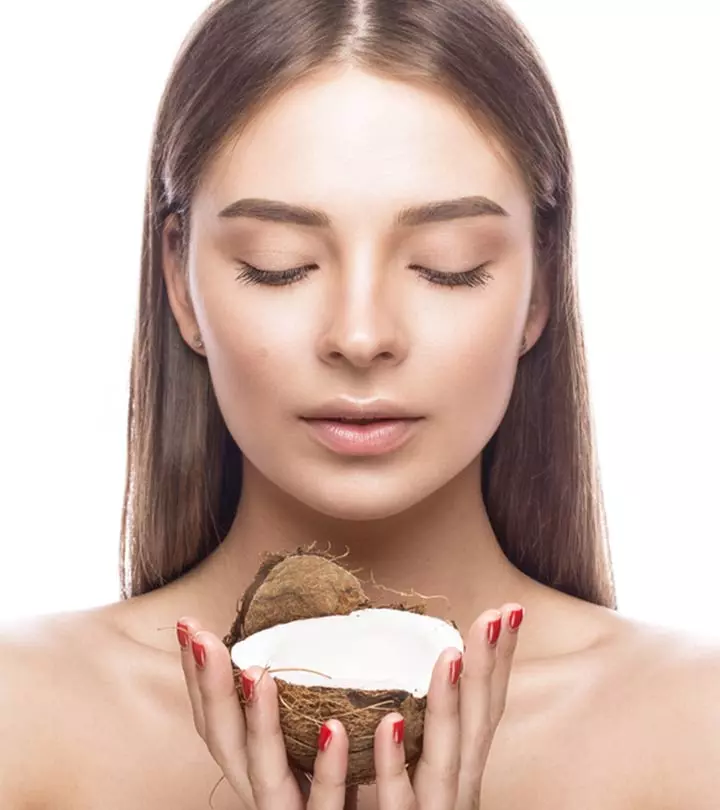

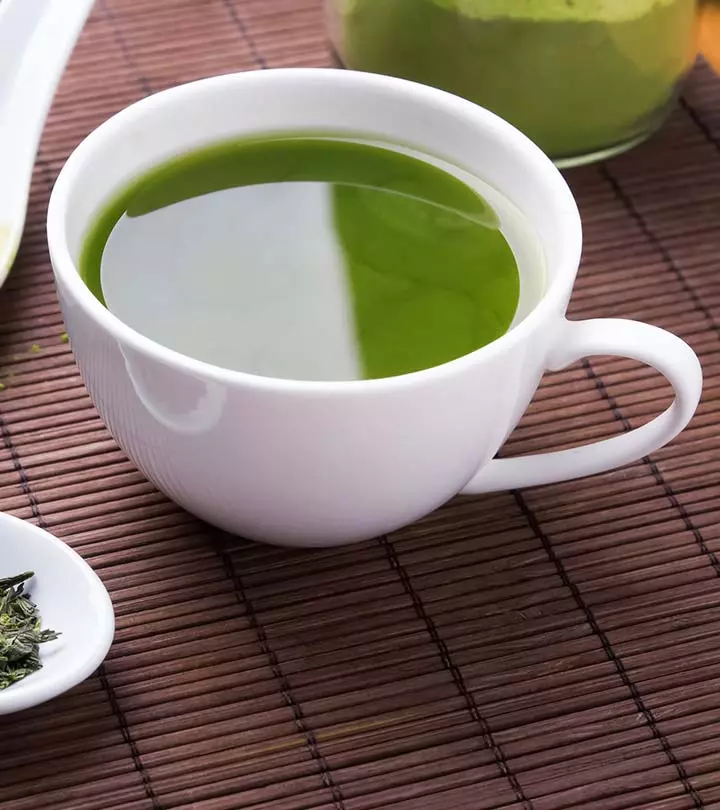



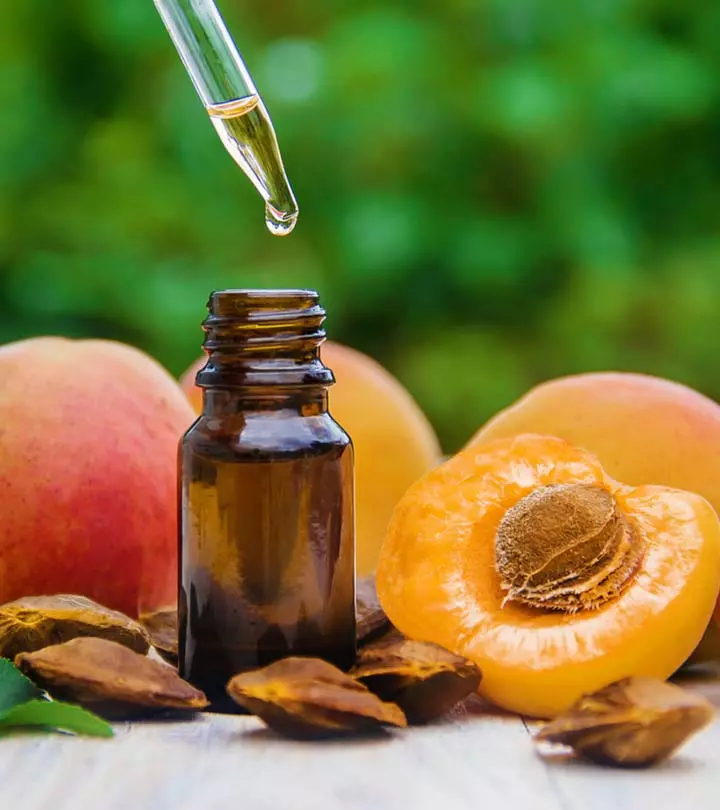

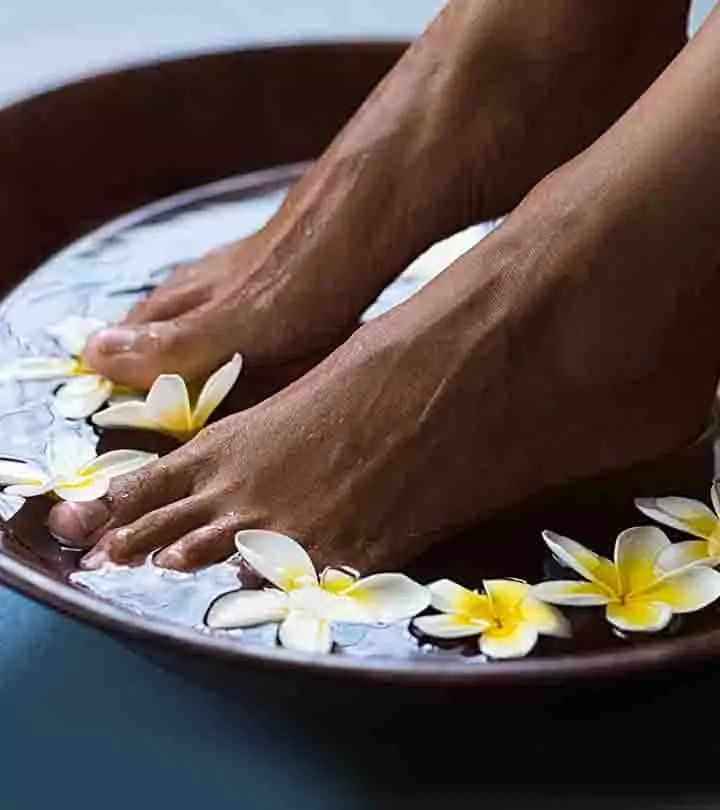

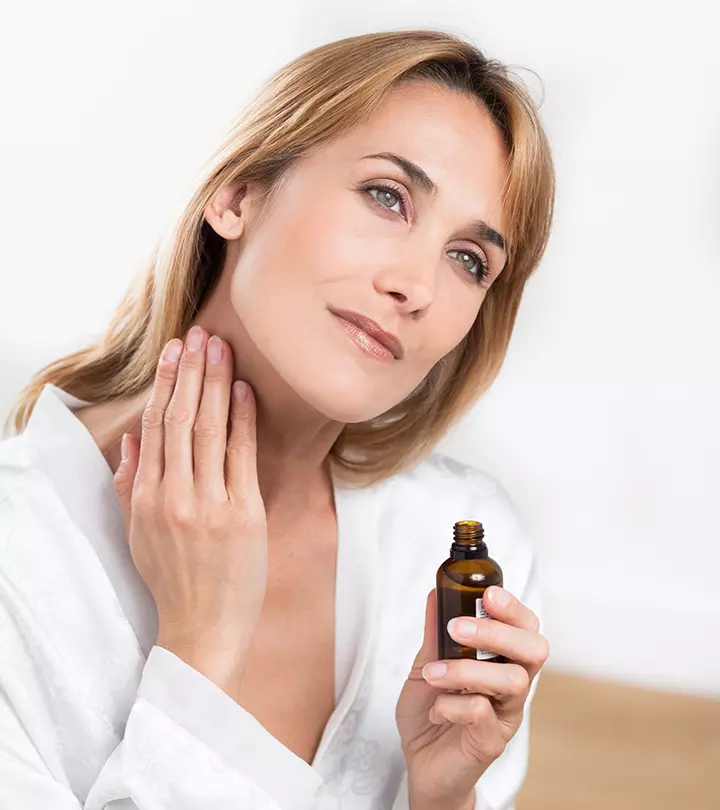

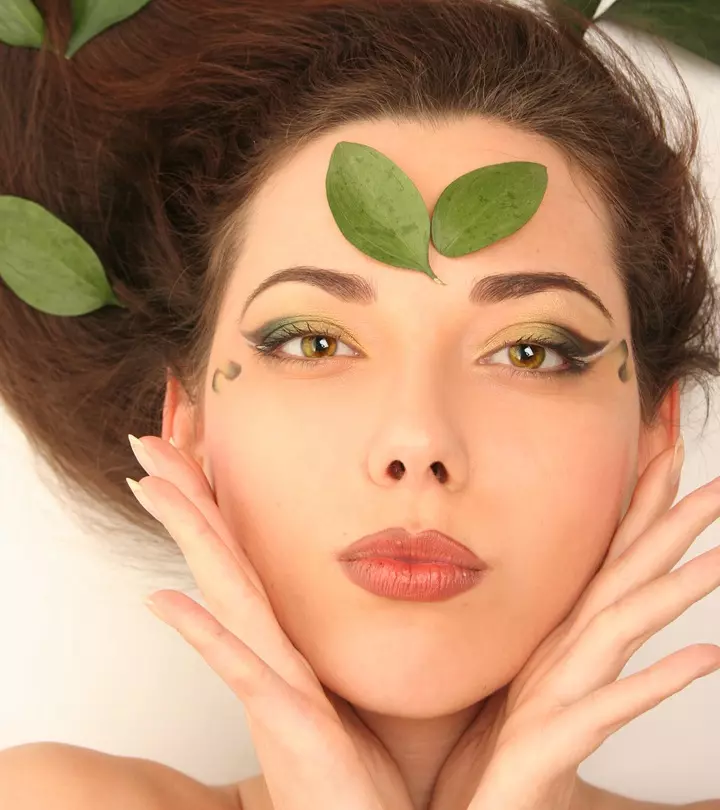
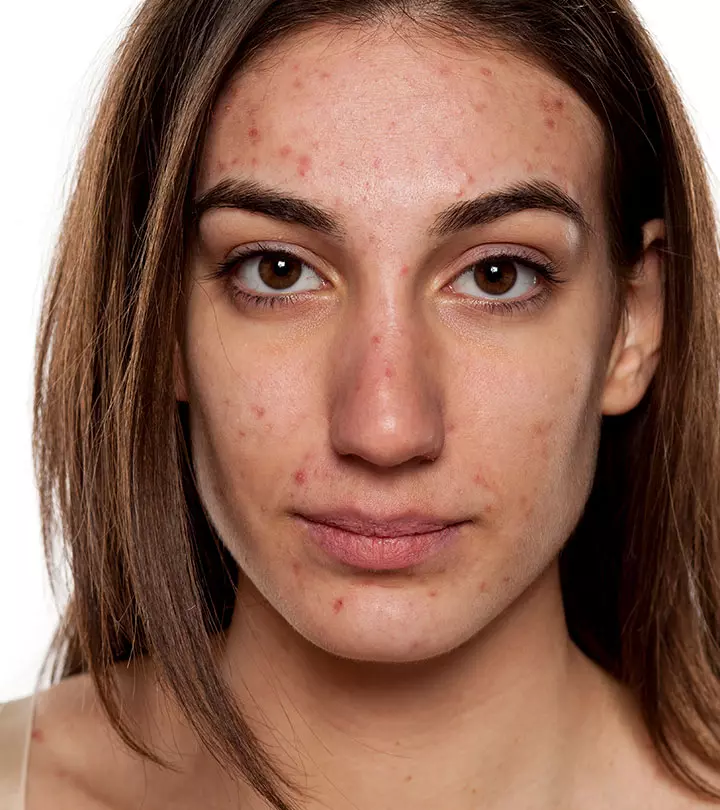
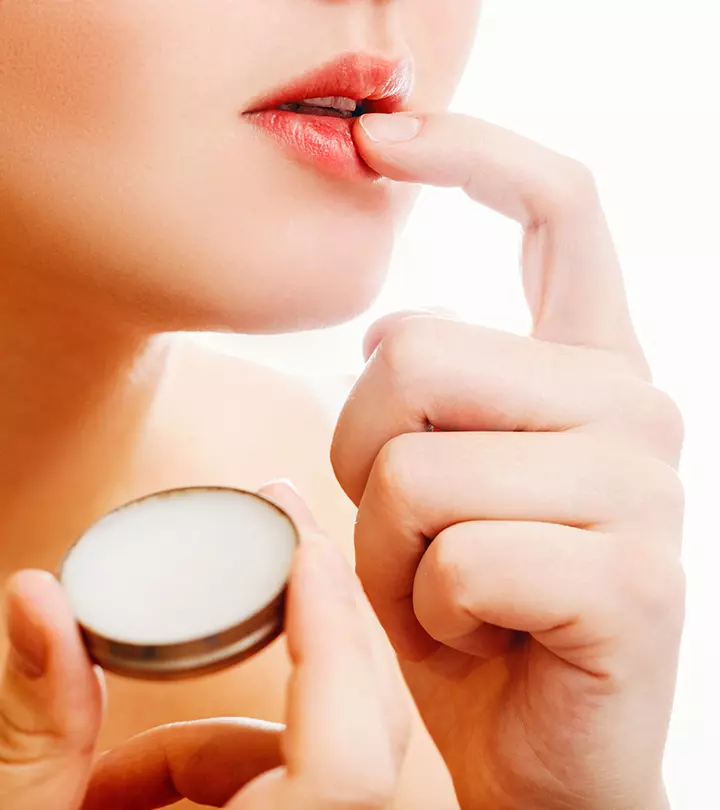

Community Experiences
Join the conversation and become a part of our empowering community! Share your stories, experiences, and insights to connect with other beauty, lifestyle, and health enthusiasts.